From College to Career - 5 Tips from Humanities & Sciences Graduates on Applying for High Tech Jobs and Internships
From left to right: Dr. Omer Rasheed of Inimmune, David Myers of Pathlabs, Kymberly Corwin of ATG, a Cognizant Company, and Lance Fisher of onX maps shared insights from their college-to-career journeys as graduates of the humanities and sciences during the grand opening of the University of Montana Humanities & Sciences Career Planning Center inside Eck Hall on September 22, 2022.
October 6, 2022
By Melissa Paulsen
The University of Montana celebrated the launch of its Humanities & Sciences Career Planning Center on the second floor of Eck Hall on Thursday, September 22, 2022. The new suite of resources is made possible with support from UM alum Joe Whittinghill, Corporate Vice President, Talent, Learning, and Insights for Microsoft and Blake Takamura.
Led by Dr. Cheryl Minnick, the Career Planning Center will offer monthly events to help Humanities and Sciences majors launch their careers prior to graduation.
For the first of these career conversations, the Center partnered with the Montana High Tech Business Alliance to host a panel on “High Tech Careers for Students in H&S.” Four humanities and sciences graduates from Inimmune Corporation, onXmaps, ATG Cognizant, and Pathlabs (formerly Lumenad) gave students tips on applying for jobs and internships, shared their journeys into Montana’s tech industry, and highlighted internship opportunities at their company for students to gain valuable hands-on experience. Here are five key takeaways from the conversation.
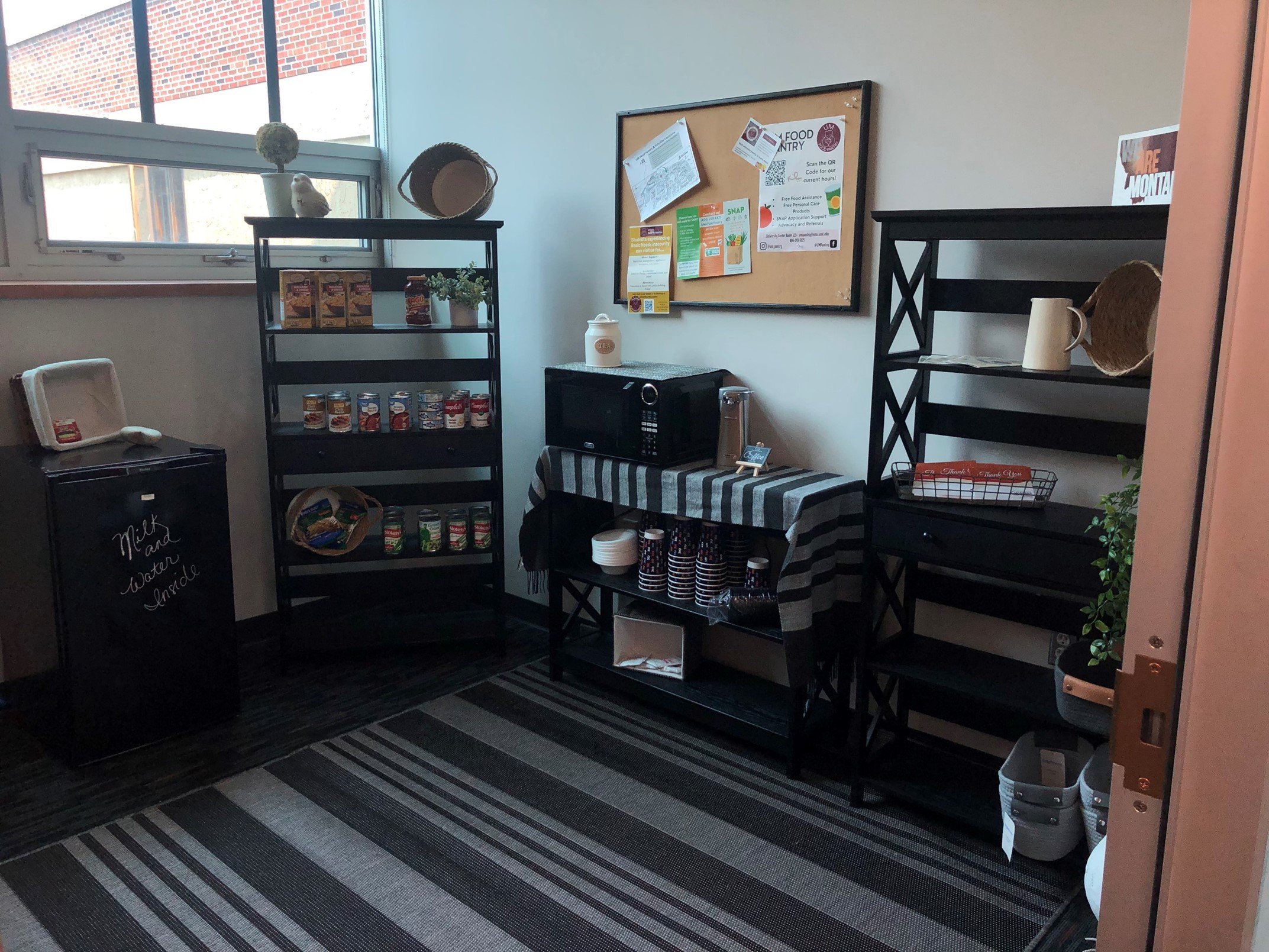
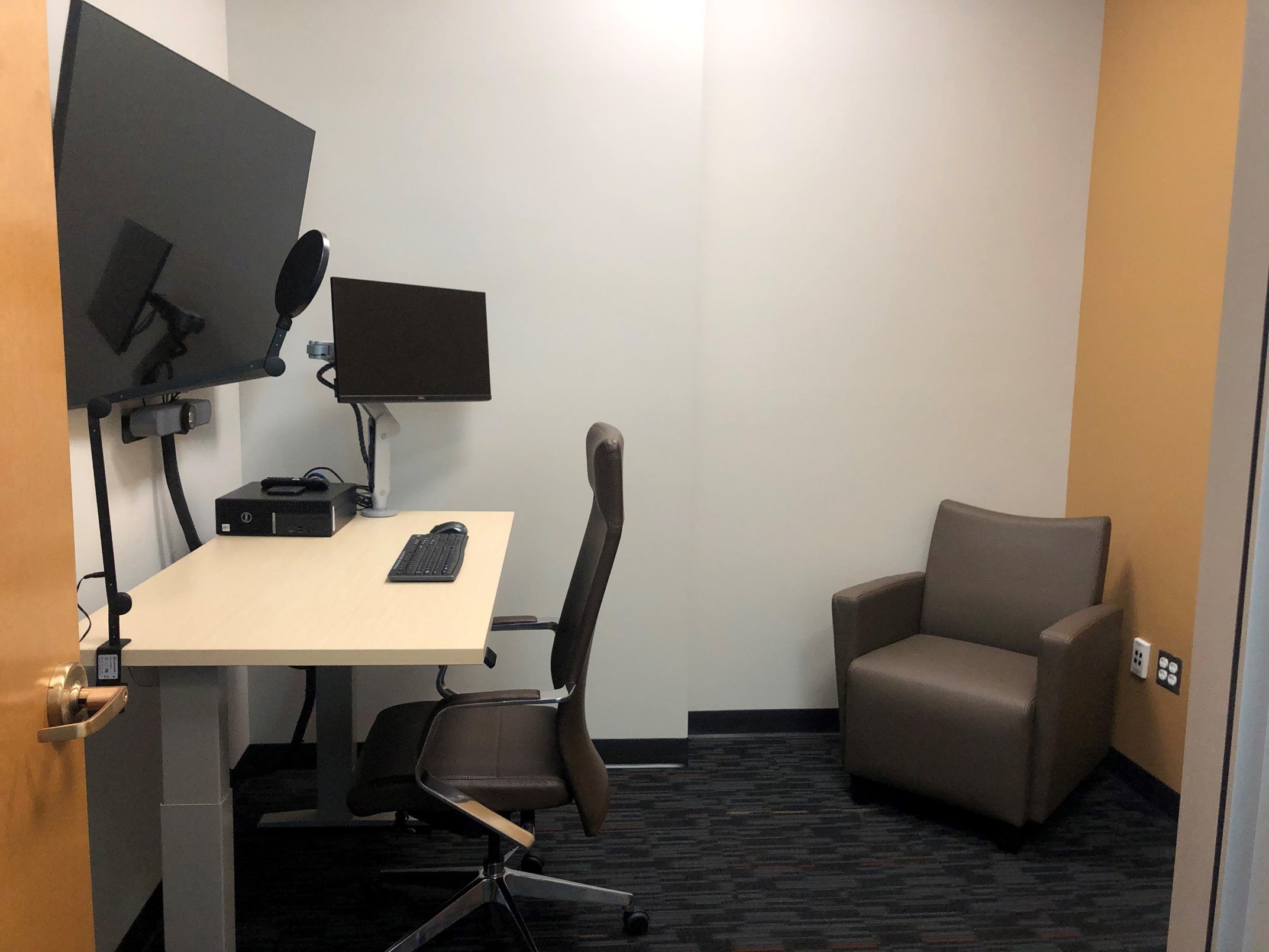
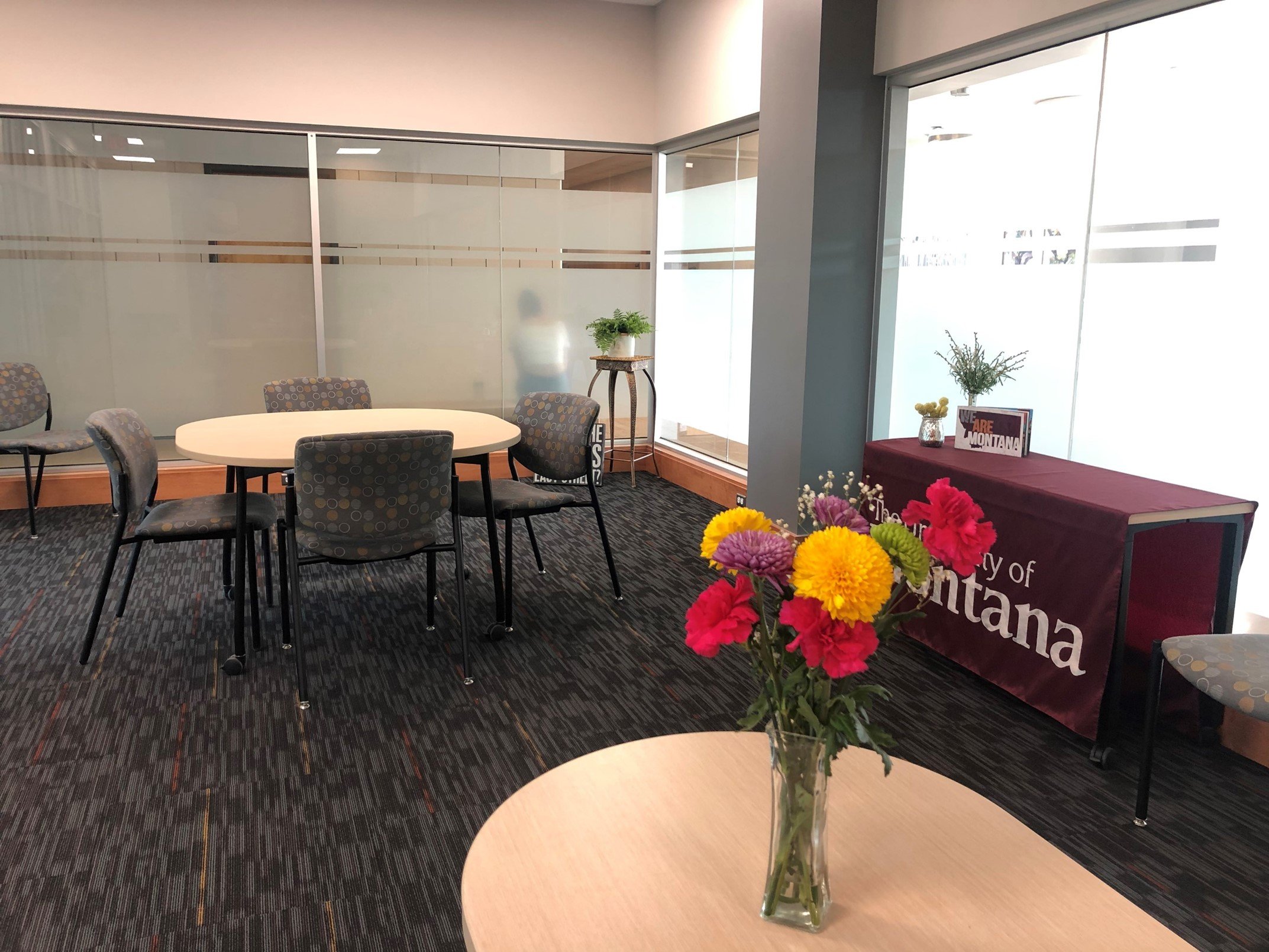
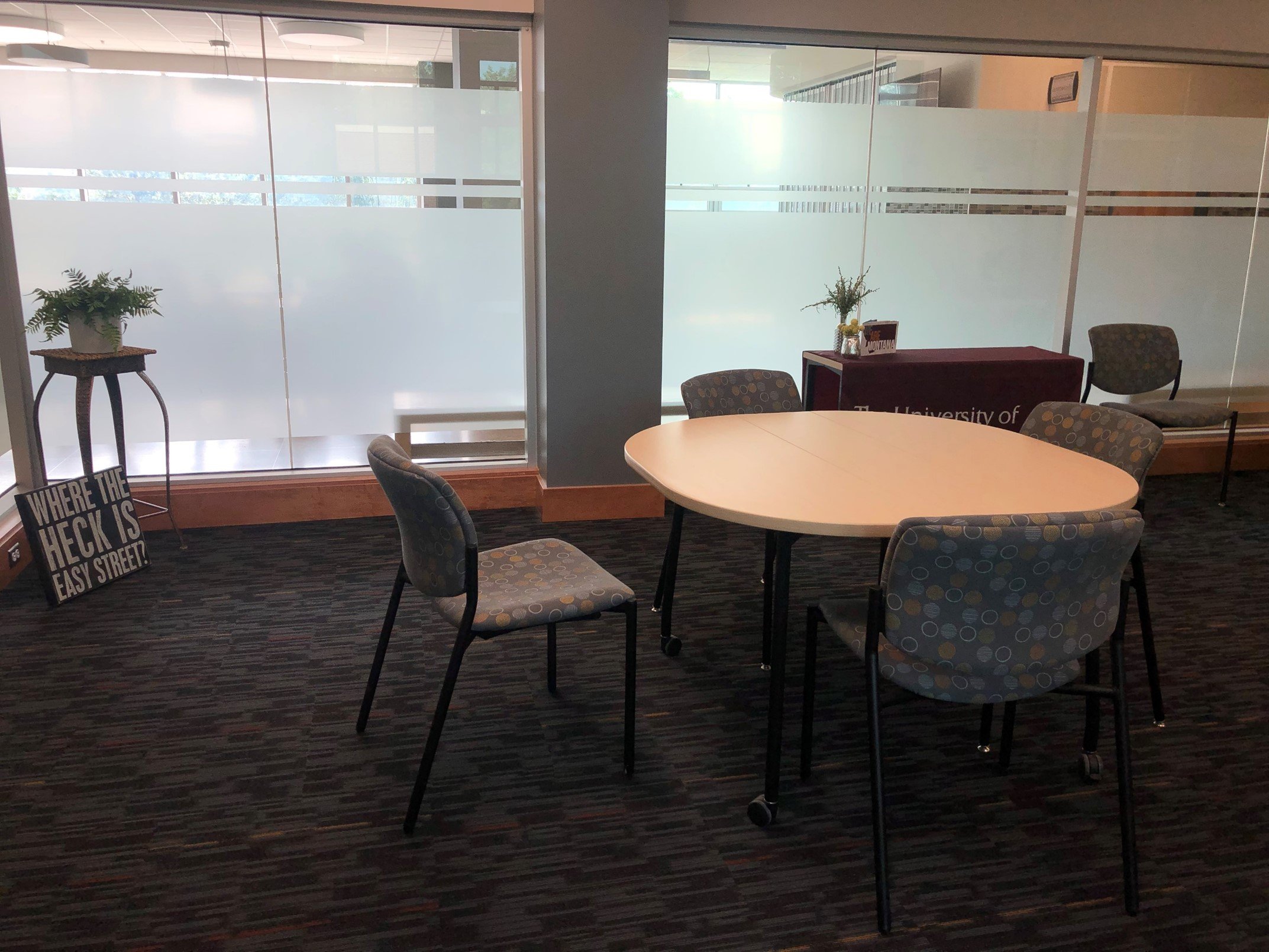
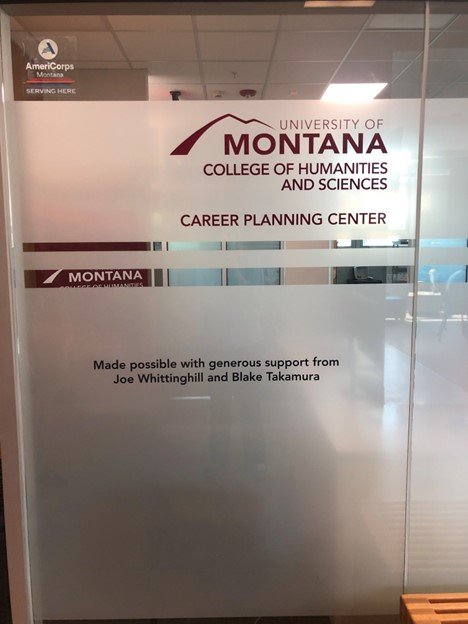
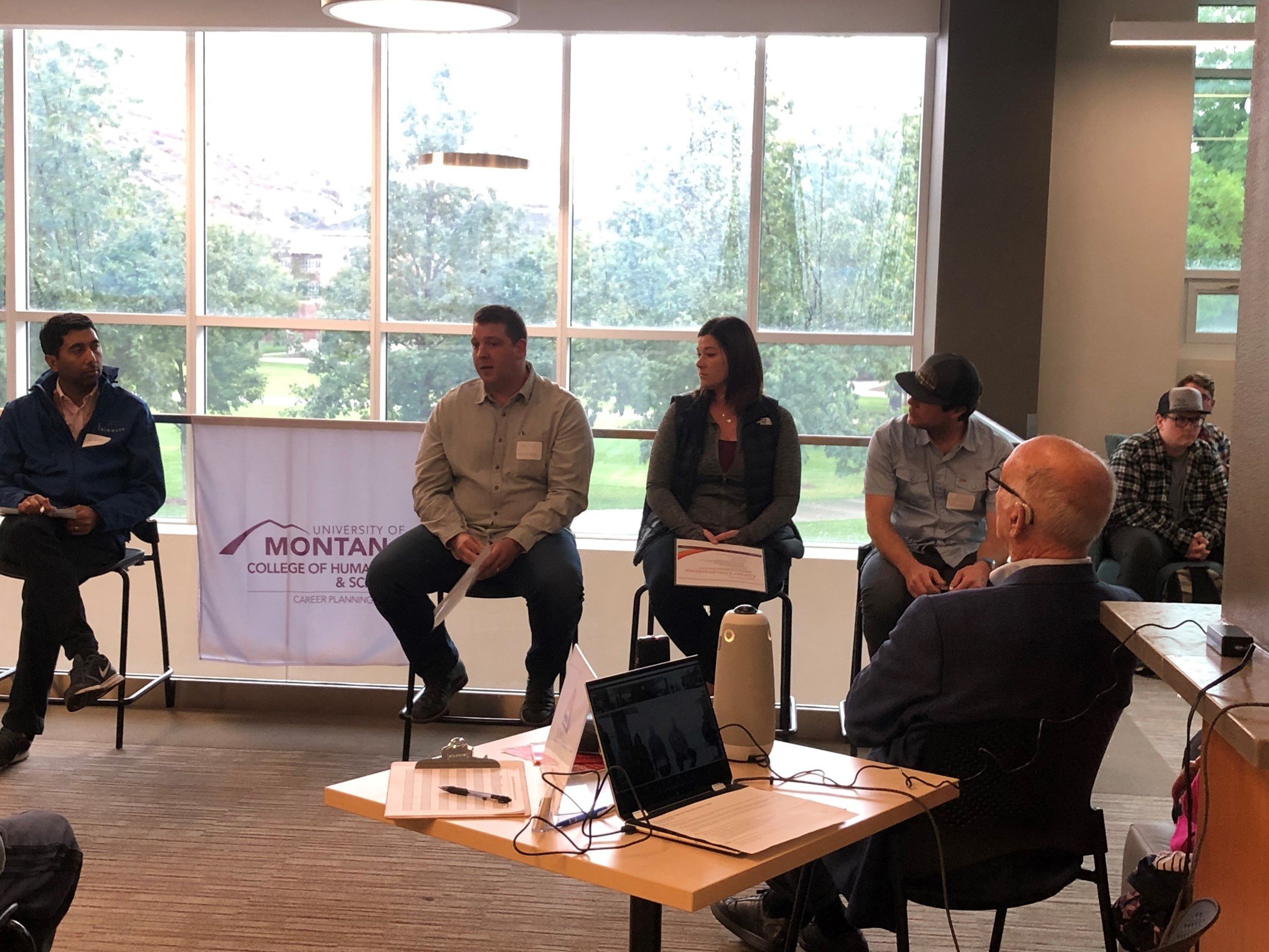
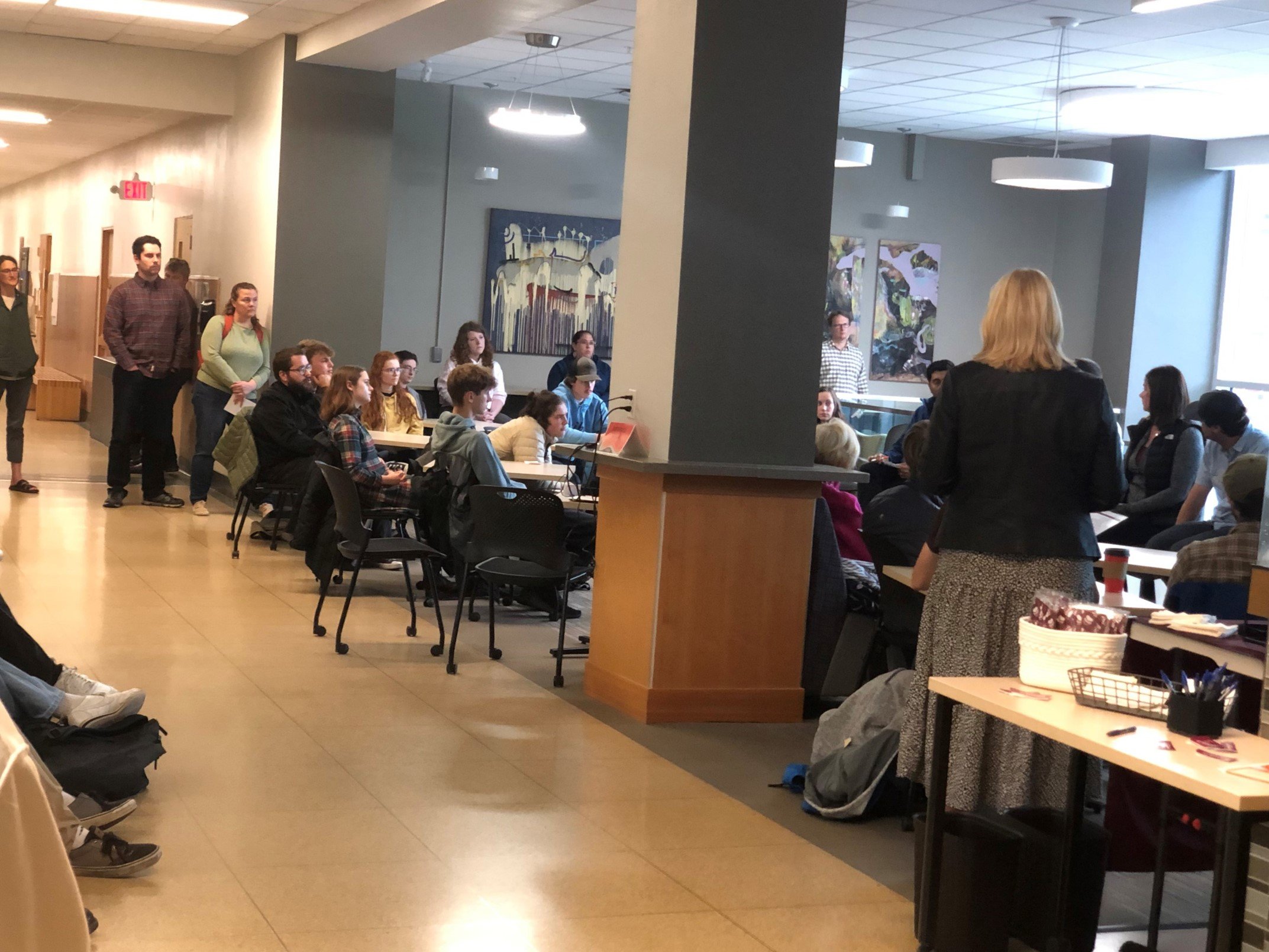
#1: Invest in yourself
Lance Fisher, Senior Director of Engineering for onXmaps, learned computer programming while serving in the U.S. Airforce. He later graduated with a B.A. in Pure Mathematics from the University of Montana. Fisher advised students to view the early years of their career as a key time to gain knowledge in the classroom and on the job.
“Everything you invest into learning at school, and every bit you invest into working hard at your job will pay dividends,” Fisher said. “When you invest in yourself early, you build your skills, and you grow more than if you had waited later on to do that.”
Students can invest in themselves by acquiring industry experience through internships. onXmaps develops mapping applications for phones to help users discover the wilderness and “awaken the adventure in everybody.” Through its paid internship program, onXmaps typically brings in ten interns a year.
“We love hiring people out of [the University of Montana] who have a passion for the outdoors like we do as a company,” Fisher added.
Applications for onXmaps’ internship program open in October and sophomores, juniors, and graduating seniors are welcome to apply. The program pairs applicants with a mentor and assigns them to a team: such as IOS or Android engineering, back-end web development, product management, or quality assurance roles.
“What I love about the tech industry is that it's super accessible to anybody,” Fisher said. “If you're smart and driven, you can make it in tech, regardless of your background. Knowing software is good, but the things that you'll learn [in] the humanities can be just as important when you're getting into the tech industry because it touches every part of our lives.”
#2: Take chances
Nearing her tenth anniversary with ATG Cognizant, Kymberly Corwin, Executive Director of the Aim Higher training program, graduated from the University of Montana with a B.A. in Organizational Communication with an emphasis in Rhetoric.
When Corwin graduated, she wasn’t just seeking a “job.” Instead, she was looking for a place where her voice and contributions mattered, which led her to ATG Cognizant. “It was about the company and the people,” Corwin said. “They actually cared about what I had to say… not because I had this fancy degree, [or] because I had experience, it was because they valued me as an individual.”
ATG Cognizant is a business and IT consulting firm that specializes in implementing SAS software for anything from a medium sized client all the way up through the enterprise level. Stemming from her passion for people, Corwin helped create the highly successful Aim Higher training program.
“[Aim Higher] became this concept of taking people that are smart, good at working in teams, and are serious about their careers, and giving them a 12-week boot camp specific to Salesforce [and] consulting.” Corwin said.
The Aim Higher Program has graduated over 222 Salesforce consultants to-date, and the average salary is three times the median in Missoula and in Missoula County. Applications open in October and the 12-week training program is paid.
Corwin told students to remember that they’re more qualified for positions than they believe, and that it’s okay to take chances.
“I really say this for those that identify as women. If you see a job description, and you do not meet every bullet, you should still apply for it. I didn't know anything about the job that I applied for. But if those bullets look interesting, and you want to learn, then go for it, because chances are you can.”
#3: Reframe rejection
David Myers, Account Manager for digital advertising agency Pathlabs (formerly Lumenad), also graduated with a B.A. in Organizational Communications from the University of Montana.
Pathlabs helps ad agencies who are used to traditional media promotion (like TV and radio) scale for digital media activation and marketing. During the summer, Pathlabs offers two to three part-time paid internships that can roll over to full-time positions for those who are driven to learn. In the spring, a founder of Lumenad will be teaching a course at the University of Montana about ad technology to familiarize students with the industry.
Myers described Pathlabs’ internship program as “boots on the ground.” He explained, “So on day one, there's a little training outside of what you're asked to do in your day-to-day job, but you would be a part of whatever campaigns were running within your actual account and team. We get you [started] right away, so that you can get to know your account manager [and] account director [and] so you feel comfortable with asking questions.”
The road to digital advertising taught Myers to reframe his rejections as opportunities. He suggested students should do the same by always building their resumes. Inspired by a friend, Myers applied to Lumenad in 2016 but was eventually rejected. When he reapplied, he was declined again, but was also given advice to acquire some digital ad experience first.
Instead of being deterred by the two rejections, Myers went out and gained advertising experience by working with Cherry Creek Media at a local Missoula radio station Z100. “I always say [critiques are] just as good as positive feedback because it gives you something to work on,” Myers said.
While working for Z100, he helped create the digital ad department within the company. After working for a year with Cherry Creek Media, Myers reapplied at Lumenad and started as a Media Coordinator there.
“A little life lesson there is just because you're rejected doesn't mean that you're not wanted,” Myers said. “You can always still reapply and remotivate yourself and get what you want out of your career.”
#4: Explore your interests
For Omer Rasheed, Investigator at Inimmune Corporation with a PhD in Organic Chemistry from the University of Manchester, the path toward finding a fulfilling career begins with understanding yourself and exploring your interests.
Rasheed’s career has taken him to Germany, Italy, China, and the United States. While working in the academic sector, he found that he was more inclined toward working in the bioscience industry.
“I moved around and learned quite a lot,” Rasheed said. “I did a post in academia and thought, ‘Oh no, that’s not my field.’ The second post I did was in the industrial sector, and then from there, my career was in industry. So, basically, you need to find out what is inside you and what you want to do. Nothing is impossible.”
Rasheed also mentioned that career fairs are a good way to keep up with companies, gain experience, and see what companies are looking for in prospective employees.
As a biotech company based in Missoula, Inimmune strives to “advance the next generation of immunotherapies and vaccine technology for the benefit of humankind.” Inimmune collaborates with colleges across the United States, including the University of Montana, and has a paid internship program that accepts applicants year-round. The company also offers both part-time and full-time positions.
#5: Utilize your resources
All guest speakers agreed that leveraging LinkedIn was important for discovering companies and connecting with potential employers.
“LinkedIn is a great way to connect to people that are interesting, research where people are working, and find alumni connections,” said Montana High Tech Business Alliance Executive Director Christina Henderson who graduated with a B.A. in English from the University of Iowa and holds an MBA from the University of Montana.
In addition to LinkedIn, college career centers like the University of Montana’s new Humanities & Sciences Career Planning Center are great resources for students who wish to be proactive about their futures. The center works with students to polish their resumes, write cover letters, and more, while also providing spaces like a private room for virtual interviews. Looking to find out more about internships, career fairs, or how to set up a LinkedIn of your own? Check out the H&S Career Planning for assistance and one-on-one career coaching. Through an app called What Can I Do With This Major? students can engage with career pathways that interest them. As a bonus, the center is also home to a fully stocked food pantry.
“I think that [for] a lot of Humanities and Sciences majors, [tech] could be such a broad field and there are so many options open to you that sometimes there's not one obvious path,” Henderson said. “My encouragement would be to try things out and test out different opportunities to see what you might like.”
About the Publisher: Launched in 2014, the Montana High Tech Business Alliance is a nonpartisan nonprofit association of more than 200 high tech and manufacturing companies and affiliates creating high-paying jobs in Montana. For more information, visit MTHighTech.org or subscribe to our biweekly newsletter.
About the Author: Melissa Paulsen is the Communications Coordinator for the Montana High Tech Business Alliance. She graduated from the University of Montana in 2022 with a BFA in creative writing and a minor in history.




